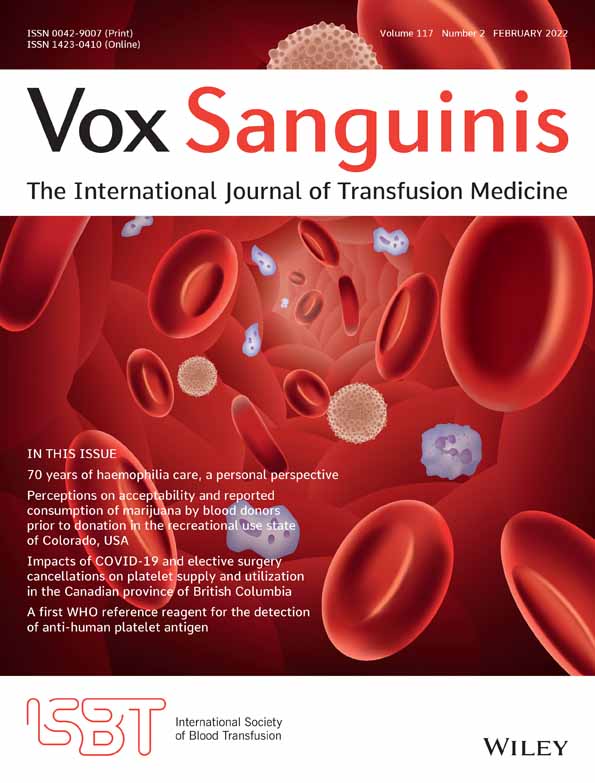Immediate intravenous iron administration improves anaemia recovery following total knee arthroplasty: A propensity-matched analysis
Funding information: None
Abstract
Background and Objectives
Patients who undergo total knee arthroplasty (TKA) have a risk of postoperative anaemia. This observational study evaluated whether single-dose intravenous ferric carboxymaltose (FCM) administered immediately after TKA facilitates the correction of anaemia.
Materials and Methods
We retrospectively analysed 722 patients who underwent primary TKA. The FCM group receiving 1000 mg intravenous FCM within one postoperative hour was compared with the non-FCM group that did not receive the medication. A propensity score matching with multiple logistic regression analysis was used to minimize intergroup differences in the baseline characteristics and postoperative blood loss. The rate and severity of postoperative anaemia were compared between the groups, along with haemoglobin (Hb) value, transfusion rate and complications.
Results
After propensity score matching, 231 patients were included in each group. In the FCM group, the rate of anaemia at postoperative day (POD) 7 (p = 0.021) and postoperative week (POW) 5 (p < 0.001) and the transfusion rate were significantly lower (p = 0.008). The rate of moderate to severe anaemia at POW-5 was also significantly lower in the FCM group (p < 0.001). In patients without preoperative anaemia (n = 322), the transfusion rate and rate and severity of anaemia at POD-7 and POW-5 were significantly lower in the FCM group than in the non-FCM group.
Conclusion
Postoperative intravenous FCM administration facilitated recovery of surgery-related anaemia by improving Hb and may reduce the need for transfusion in TKA patients. Preoperative non-anaemic patients could also benefit from accelerated recovery by intravenous iron treatment.
CONFLICT OF INTEREST
The authors declare that they have no conflicts of interest associated with this study.




